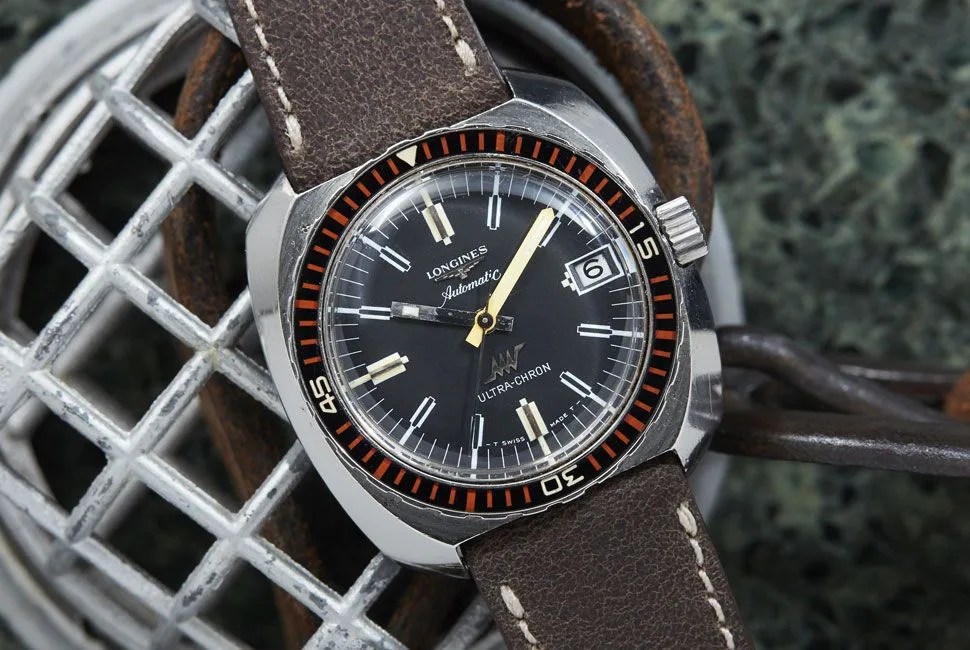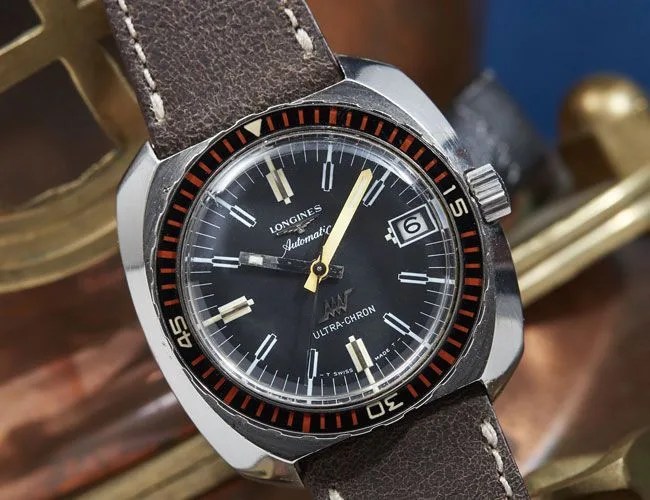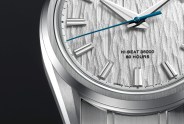Among the many geeky complications and innovations produced for watches over the years, the high-beat just might be the geekiest. Why all the fuss? It ticks a dizzying 36,000 times an hour (or 10 beats a second), versus most modern watches, which beat at 28,800 or 21,600 beats per hour (eight and six beats per second, respectively). Okay, so that’s a lot of numbers, but the upshot is this: it’s a small but difficult-to-master improvement that makes for a more accurate watch. And that’s to say nothing of the mesmerizing smoothness of the seconds hand on a higher-beat watch. But if anything, a high-beat watch — especially a vintage one — is more a reflection of the forward-thinking and mechanical mastery of those who made them. Like I said: pretty geeky, huh?
Seiko Lord Marvel
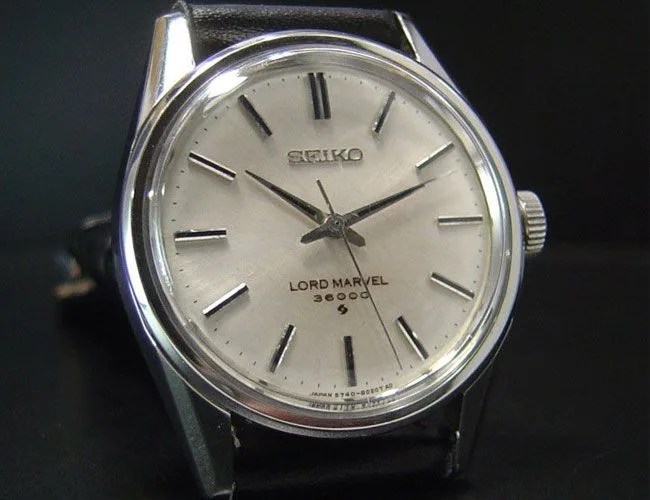
What we like: One of the cheapest ways into the world of high-beat watches. Not only that, this watch is fitted with Seiko’s first high-beat movement, the 5740C, launched just one year after Girard-Perregaux’s Gyromatic (see below). Yet despite its historical significance, bidding looks like it’ll stay under a few hundred dollars. An absolute steal.
From the seller: I polished the watch, but it has scratch damages on metal parts and glass. The dial is faded a little, and there are very thin scratch damages. I put the watch on the desk for 12 hours and it is keeping time.
Girard-Perregaux Gyromatic
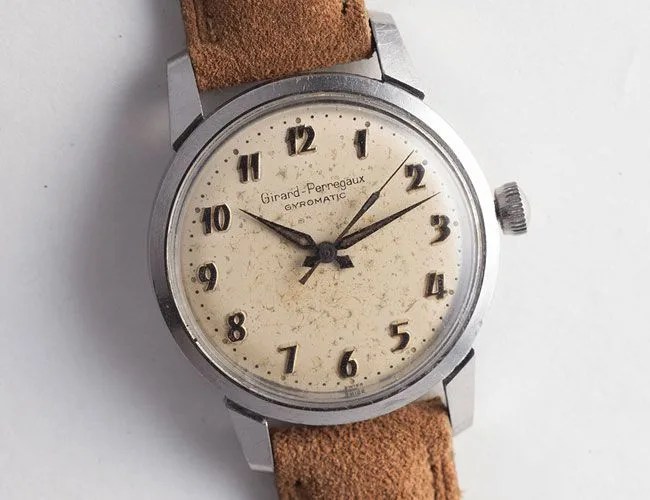
What we like: When Girard-Perregaux launched the Gyromatic in 1966, it was the first watch in the world to tick away at 36,000 beats per hour, though it was often plagued by high frction. Still, like the Lord Marvel, the Gyromatic remains a relative bargain on the vintage market. This one certainly has some patina on the dial, but looks to be otherwise immaculate.
From the seller: Case has no serious nicks or scratches; dial has patina throughout.
